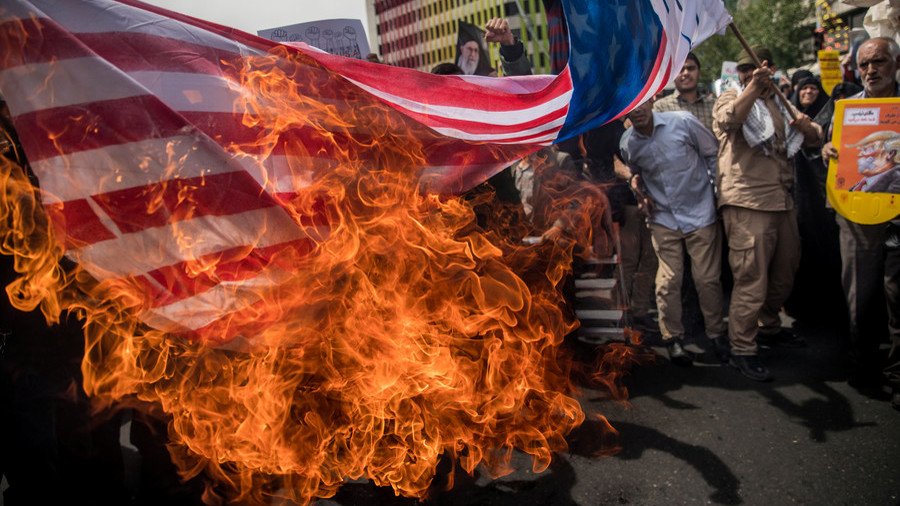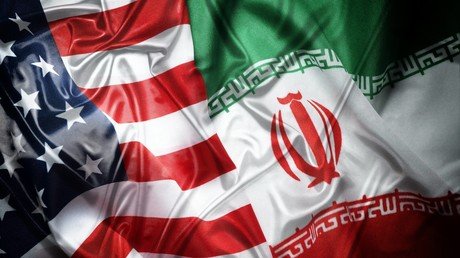‘UN was obliged to punish US for sanctions against Iran, but did nothing’

Unilateral US sanctions against Iran resemble an act of war and it was the UN's obligation to interfere, but it chose to do nothing, putting its own credibility in doubt, political commentator Seyyed Mostafa Khoshcheshm told RT.
“Imposing sanctions on nations – state or non-state actors – resembles a declaration of war – that entitles the United Nations and other international bodies to take action by every means to stop the hostile party," Khoshcheshm said, adding that the UN could have used countersanctions, boycotts and even military means to make Washington fall in line.
By withdrawing from the landmark Iranian nuclear deal, which was approved by the UN Security Council, the Americans showed "full disrespect" of the UN charter and the UNSC, he added.
"The UN should've already taken action to stop the US, and not just that, but also to have punished the US for this violation. And the UN hasn't done anything, unfortunately. That's why many believe that the UN is becoming increasingly an instrument in the hands of the US and its allies to exercise force against smaller and weaker countries or independent nations," Khoshcheshm told RT.
On Monday, Tehran went to the International Court of Justice (ICJ) in an attempt to abolish the US sanctions – what the analyst called "the least Iran should've done." As a victim of restrictions imposed outside of the UN Charter Chapter 7 or a UNSC sanctions resolution, Iran had every right to address the court in The Hague.
"The first action [ICJ] or any other court should do, according to the law, is halting the action that's the topic of the dispute until the final verdict. Al least, the US would be required to halt the hostile action, in this case, the sanctions," Khoshcheshm said.
The US is "incapable" of fighting "a hard war when people are killed with missiles, bombs and bullets" against Iran, considering their failures in Iraq and Afghanistan, he pointed out. Washington instead resorts to "economic and financial warfare," targeting not only Tehran, but also Beijing, Moscow, Ankara and "to some extent Brussels." Another weapon in the American arsenal is propaganda, used to change "the mindset of the people" in Iran and elsewhere, the commentator said.
Iranian lawyers said the country had no choice but to bring the sanctions issue to the ICJ as the US refused to negotiate a solution on a diplomatic level. The US is attempting "bring Iran to its knees," they said, adding that the American sanctions violated a bilateral accord struck between Tehran and Washington back in 1955.
US President Donald Trump pulled out of the 2015 international Iran nuclear deal, the Joint Comprehensive Plan of Action (JCPOA), this May, after repeatedly calling it "the worst deal ever." American sanctions against Tehran, suspended under the deal, are now being reinstated.
However, other signatories, including Russia, China, the UK, France and Germany, are working to maintain the agreement, which envisaged the lifting of economic pressure against Tehran in exchange for it curbing its military nuclear program.
Like this story? Share it with a friend!















